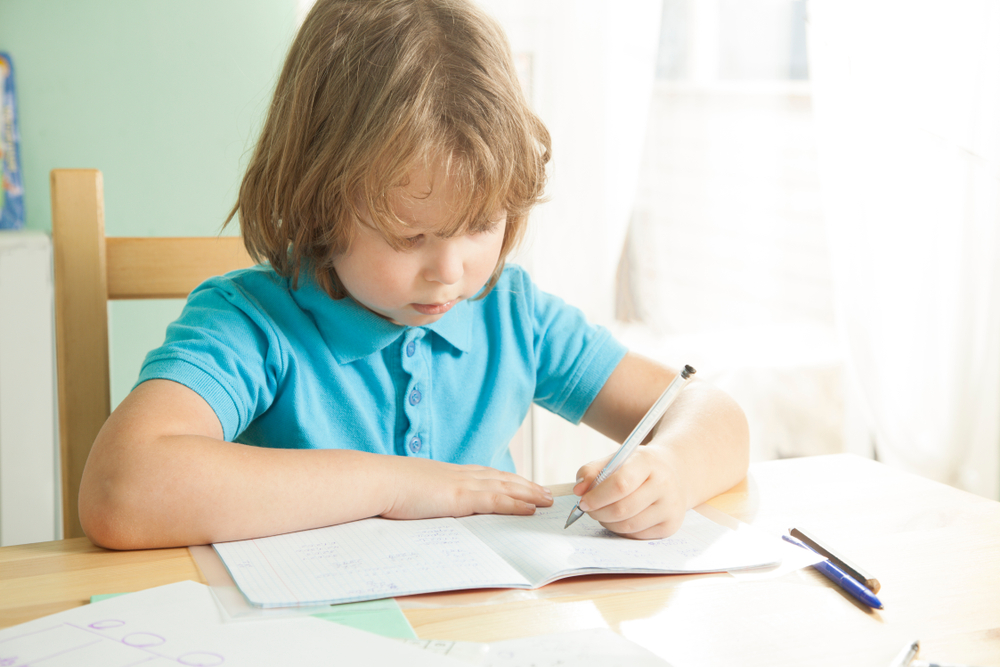Best Ideas for Teaching Citizenship to Early Learners
Dec. 3, 2018
All parents want to see their children succeed. As parents, we spend a lot of time providing our children with the tools they need to be successful in school and beyond. But have you ever thought about the real reason why we want our kids to master their classes and go on to build successful careers? The answer might seem easy: to get great jobs and earn enough money to support a comfortable lifestyle. While all parents have this goal in mind for their children, it goes much deeper than merely earning a salary.

That’s exactly why teaching citizenship to elementary students is so important. Mastering math and conquering reading is also important, but at the end of every child’s academic journey, they will go out into the world and use those skills and put them towards a much higher cause. Because we’re teaching our children to become members of our society, it’s important to emphasize civics learning early in every child’s life.
First, let’s examine what it means to be a good citizen before going on to discover some of the best ideas for teaching citizenship for kids from kindergarten through 3rd grade.
The Makings of a Good Citizen
What makes someone a good citizen? Is it just about raising the American flag, or is there more to it than lighting a sparkler on the 4th of July? As you might suspect, looking like a good citizen is different than actually being one. Sometimes being a good citizen is helping out in your community, giving to the poor, or following current events and issues that matter to you… and following up on them by writing to a representative.
Being a good citizen involves attaining a particular set of knowledge, skills, and values. First, children must learn important information regarding their local, state, and national government and culture. Kids also need to acquire important skills, like teamwork and critical thinking to evaluate the knowledge they’ve learned. Ultimately, though, kids must develop deep values that make them want to be good citizens in the future. These values include responsibility, compassion, honesty, integrity, and tolerance.
When we put together the knowledge, skills, and values necessary to form the foundation for any good citizen, we can ensure that our children are in the very best position possible to become contributing members to society as adults. The question that remains is how can we best teach children the knowledge, skills, and values to kids in a way that is both engaging and transformative?
Ideas for Teaching Civic Values
Model Democratic Ideals in Your Home or Classroom
The most important lesson for your child is one that can be modeled at home or in the classroom every single day! While all children need firm limits and healthy structure in their lives, it is possible to lead a lifestyle that promotes the ideals of a democracy. For instance, in the classroom, a teacher might include the usage of polls or a class voting system to give students a choice regarding activities or rewards. In fact, many teachers will create class rules together with students to foster student buy-in and the feeling that everyone is welcome and working toward a common cause.
In the home, not all family decisions are negotiable, but single out those that can be. Encourage kids to have a say in decisions such as movies, family games, or other collaborative activities. Further, model responsible civic behavior by taking children with you to the polls on voting day, and talk about the importance of voting in every election.
Celebrate and Respect Culture
While celebrating other cultures from around the world might seem counterintuitive to learning about the national culture here at home, it is actually critical to foster a sense of respect and tolerance in your child. Remember, in our increasingly connected world, teaching citizenship isn’t just about teaching American citizenship, but also about being a global citizen.
Start by examining your local culture in your community and talk about the traditions and values that exist within your family. Then, branch out to learn more about state or geographical culture and how values differ across the US. Then, take a look at national culture and pride before talking about cultures, traditions, and governments across the globe. Be sure to model appropriate respect and tolerance for all cultures while teaching your child to have pride in his own.
Evaluate Current Events and How to Approach the News
Another great way to teach civics to early learners is to analyze age-appropriate current events and lead a discussion on how to approach the news. In doing so, it promotes the idea of keeping your child connected to the world, and spreading the importance of remaining aware of the important issues that drive the current events in the world. Even when it comes to voting, most citizens need to be aware of the issues on the ballot and form ideas and beliefs. By being exposed to the news, your child will grow up connected to society so that he or she can feel confident and driven to contribute.
As you may know, the news can be extremely scary for children. However, there are kid-friendly news sites, like Time for Kids that can introduce kids to the media in a safe way. Talk to your child about the articles you read together, and don’t forget to talk about how to evaluate the news. All kids should be taught to look for more than one source of news information, and to separate opinion from fact.
Utilize Family Members and Shared History
Are any members in your family service members, or have any made any civic contributions to society? Perhaps your child’s Grandfather fought in the Vietnam War. Maybe an older sibling, a cousin, or a close family friend is training to be in the military. Discuss the contributions that your family members have made, and when possible, take a trip down memory lane. Help your child interview Grandpa about his service to the country, and talk about the importance of such work.
Likewise, if any family friends or close family members work in the government, or work in public service, help your child interview those members as well. For instance, public servants include police officers, firefighters, teachers, government workers like councilmembers, and more! Public servants play a vital role in running our society and keeping us safe. If your family does not have any public servants or military personnel, don’t be afraid to seek out community activities for kids that are hosted by the local fire or police station. Many preschools also host visits from the Sheriff’s office to learn more about community servants.
Send Cards or Write to Soldiers
One intriguing way to promote the importance of the military, and to show appreciation for our servicemembers is to write to soldiers! Organizations such as Adopt a US Solder offer parents and kids an easy way to get in touch with a soldier by sending letters and/or cards. This website allows you to connect with a deployed servicemember and send letters, cards, and even optional care packages to troops overseas. This site allows you to adopt a soldier for the length of his or her deployment. Another non-profit organization, A Million Thanks, allows you to send one-time thank you letters and holiday greetings to soldiers.
By participating in such a rewarding activity, kids can learn to respect our military personnel and the hard work they do for our country. Be sure to discuss with your child the sacrifice that servicemembers make, and how their work protects our country and the ideals it is based upon.
Just Be a Good Neighbor
Lastly, foster your child’s sense of community by engaging them in service activities that can improve their neighborhood. Not only will your child learn to appreciate their own community, but he or she will gain a sense of pride knowing that they made a difference. Along the way, your child will learn more about the services and servants that work hard for citizens each and every day.
First and foremost, look for projects that interest your child in the community, and offer a selection of ideas. For instance, volunteer to clean up the neighborhood and collect trash, or volunteer at the local animal shelter or food bank. Whatever it is, get out there and expose your child to services they can contribute to right within their own community.
As parents, it’s easy to get lost in the daily grind of helping kids with homework and pushing them towards academic success in subjects like reading, writing, or math. But it’s important to remember that the true reason for raising them with such high standards is to help them become productive members of society. Teaching citizenship to elementary students might at first seem unnecessary, but it’s actually critical for the growth of any community.











